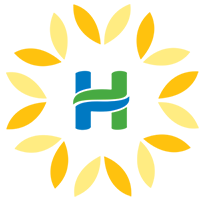Agricultures, Foods, News & Event
Bringing Vietnamese agricultural products to Europe
According to the Ministry of Agriculture and Rural Development, the export turnover of Vietnam’s agricultural, forestry and fishery products to the European Union (EU) market in the first six months of 2023 reached 2.1 billion USD, down 16.6%. compared with the same period in 2022.

The reason is explained that the EU is facing an energy crisis and a “fever” of food prices leading to an economic recession, cutting food consumption in many countries, including leading economic countries. Accordingly, many of Vietnam’s main agricultural products exported to the EU had a decrease in turnover.
According to the Ministry of Agriculture and Rural Development, the export turnover of Vietnam’s agricultural, forestry and fishery products to the European Union (EU) market in the first six months of 2023 reached 2.1 billion USD, down 16.6%. compared with the same period in 2022.
Specifically, cashew nuts, data from the European Statistics Agency show that, in the first 4 months of 2023, the EU imported cashew nuts from Vietnam approximately 32,000 tons, worth 186.2 million EUR (equivalent to 205 million USD). 14 million USD), down 12.8% in volume and 20.1% in value.
Vietnam’s cashew nut market share in the EU’s total imports from the world decreased from 55.78% in the first 4 months of 2022 to 50.49% in the first 4 months of 2023.
For wood products and wood products, exporters are facing new regulations and requirements from the EU market… so it is forecasted that exports in the last months of the year will continue to decrease. .
The EU is a potential market and is expected by the agricultural industry and export businesses to increase turnover, especially since the EU-Vietnam Free Trade Agreement (EVFTA) was signed.
Accordingly, many key agricultural products of Vietnam exported to the EU, such as pepper, cashew nuts, vegetables, coffee, tea and rubber, all enjoy preferential tax rates right after the EVFTA Agreement. effective from August 2020, bringing a great competitive advantage to Vietnamese agricultural products.
However, Vietnamese agricultural products entering the EU recently have not achieved the expected growth rate. Part of the reason is that non-tariff measures such as phytosanitary measures (SPS) or technical barriers to trade (TBT) are still challenges for Vietnamese agricultural products when exporting to the EU. .
Most recently, the European Parliament (EP) passed a new law banning the import of goods believed to be related to deforestation, in order to boost global efforts to combat climate change.
Vietnamese agricultural products entering the EU have not yet achieved the expected growth rate. Part of the reason is that non-tariff measures such as phytosanitary measures (SPS) or technical barriers to trade (TBT) are still challenges for Vietnamese agricultural products when exporting to the EU. .
Accordingly, the new law will be applied to coffee, cocoa, soybeans, sawn timber, palm oil, cattle meat, rubber… and derivative products from countries around the world. gender. Products in this group that are involved in deforestation will be banned from being imported into the EU.
Faced with that fact, in order to effectively take advantage of the tariff advantages from the EVFTA Agreement and at the same time overcome the technical barriers of this market, the agricultural industry needs to continue to change production and farming methods. according to good agricultural practice standards, towards green and sustainable production criteria to meet strict quarantine requirements.
Currently, the Ministry of Agriculture and Rural Development is promoting the implementation of solutions in approved projects, such as “Pilot project to build areas of agricultural and forestry raw materials that meet standards for domestic consumption and export in the period of 2022-2025”; “Project on promoting agricultural, forestry and fishery exports to 2030”.
The agricultural sector continues to accelerate the development and submission to the Government for approval and organize the implementation of the Project “Sustainably develop 1 million hectares of high-quality rice cultivation associated with green growth in the Mekong Delta” and Project “Development of a logistics system to improve the quality and competitiveness of Vietnamese agricultural products to 2030, with a vision to 2050”. This will be a platform for Vietnamese agricultural products to best meet the requirements and regulations from the EU high-quality market.
Source: https://baosonla.org.vn/kinh-te/dua-nong-san-viet-nam-sang-chau-au-maQz7N3Vg.html

